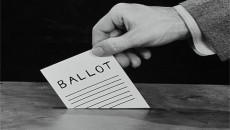The city is looking to impose direct deposit as the sole method for receiving bi-weekly pay for municipal employees.
Some council members were in favor of the proposal while others opposed the measure which was up for discussion on Tuesday evening.
“We should have done this five years ago,” said Julio Tavarez, 5th Ward councilman. New Jersey municipalities were empowered to mandate direct deposit starting July 1st, 2014 via a state statute.
The measure will force city employees to enroll into the direct deposit method of receiving their wage beginning January 1st, 2016, according to the resolution. At present city employees are allowed to select whether they wish to receive their pay directly to their bank accounts or to receive pay checks.
“I hate direct deposit,” said Kenneth Morris, councilman at-large. He expressed his intense dislike for direct deposit, which he says only benefits the banks, as it guarantees them cash flow.
“There are many employees who don’t even have bank accounts,” said Morris. “Once you mandate direct deposit they have to have a bank account.”
Morris said many municipal employees barely make enough to feed their families and can ill afford to keep the minimum balance necessary to maintain a bank account.
“It’s a cost savings measure,” said William McKoy, 3rd Ward councilman, who would vehemently oppose the measure. He said Jersey City has mandated such a policy. Governor Chris Christie signed a law in early 2013 that mandated direct deposit for state employees beginning July of 2014.
Alex Mendez, councilman at-large, wanted to know how much the city will save by mandating its 2,000 employees to use direct deposit.
Business administrator Nellie Pou did not have exact numbers, but said the city would save money on check printing papers, a special and much more expensive paper stock. “There is a cost savings certainly,” she said.
Mendez said he was in favor of the measure. He cited a bogus statistic that 90-percent of private sector companies force their employees to receive paychecks through direct deposit.
Maritza Davila, councilwoman at-large, who works at the Passaic County Community College, favor the measure, stating that her employer uses direct deposit. She said she does not even see paper paystubs and has to print them out by logging into a portal provided by payroll provider ADP.
The resolution states direct deposit will reduce incidences of lost or stolen checks, allow for greater control over payroll expenses, and grant city employees more timely payment and reduced clearance time for checks.
“It’s governmental interference,” said Morris. “I don’t like people telling me what to do with my money.”
Morris invoked a clause in the resolution to demand a separate resolution which will exempt him from receiving his pay via direct deposit. Seasonal and temporary employees will be exempted from the force direct deposit, according to the resolution.
Employees who wish to be excluded must request it in writing. The council will then pass a resolution exempting the particular employee from the direct deposit mandate.
As the discussion dragged on Tavarez complained the council was wasting its time on an unimportant issue. He said most institutions no longer print checks because it’s a huge waste of money.
An exasperated McKoy retorted Tavarez stating the decision being made at the council will impact the lives of many employees. Tavarez said the city should be going towards paperless payroll where employees do not get checks or paystubs, but must login to a website to obtain it themselves.
“What’s the matter with you guys? What’s the matter with you?” responded a visibly angry McKoy at Tavarez’s comments.
Tavarez said in this day and age most people have a bank account. He said majority of people in the United States have internet access.
“I’m talking about Paterson,” said McKoy mentioning the large number of residents who live in poverty. 29.1-percent of city residents or almost 43,000 Patersonians live below the poverty level, according U.S. Census estimates.
The Federal Deposit Insurance Corporation (FDIC) in a 2013 survey estimated 9.6 million American households or 7.7-percent of households in the United States do not have bank accounts or were considered unbanked.
African-Americans and Latinos – the two largest segment of Paterson’s population – are among the most unbanked groups in the country. The survey found almost 18-percent of Latino and 20.4-percent of Black households did not have bank accounts.
“We have to be cognizant that not everyone is at the level of sophistication or technology command that we are,” said McKoy. “I don’t think we can go and presume that everyone has a checking account, everyone has a computer, everyone has internet access, and everyone can dial up into a system and get their information.”
Pou said the city will assist employees to obtain bank accounts by inviting a financial institutions to a municipal bank fair.
“We’re not going to create any kind of chaos,” said Pou.
The resolution to mandate direct deposit for city employees will be voted on during the council’s next regular meeting on September 15th, 2015.



